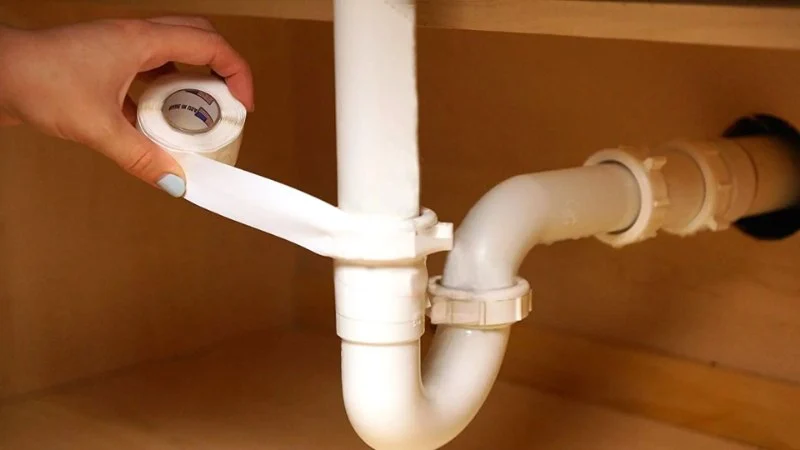
- 1- Understanding Settling Damage to Plumbing Joints
- 2- Common Causes of Settling Damage in Plumbing Joints
- 3- Signs of Settling Damage to Plumbing Joints
- 4- Effective Preventive Measures for Plumbing Joint Protection
- 5- Case Study: Real-Life Example of Plumbing Joint Damage
- 6- When to Seek Professional Help for Plumbing Damage
- 7- Final Tips for Maintaining Healthy Plumbing
1- Understanding Settling Damage to Plumbing Joints
Plumbing joints play a crucial role in ensuring that your home's plumbing system functions smoothly. However, settling damage to plumbing joints can cause significant issues over time, resulting in leaks, bursts, and costly repairs. Settling damage occurs when the foundation of a house shifts or sinks, which affects the pipes and plumbing connections beneath the surface.
This type of damage can compromise the integrity of your plumbing system, making it more susceptible to leaks and failure. Understanding how settling affects plumbing joints is key to preventing costly plumbing issues and maintaining a healthy home infrastructure.

Tony's Plumbing Inc.
Los AngelesLos Angeles CountyCalifornia
25039 Vermont Ave, Harbor City, CA 90710, USA
2- Common Causes of Settling Damage in Plumbing Joints
There are several factors that contribute to settling damage in plumbing joints. Knowing the causes can help you take proactive steps to protect your plumbing system:
- Foundation Shifting: One of the most common causes of settling damage is the shifting of a home’s foundation. Over time, the soil beneath the foundation can settle or erode, causing uneven weight distribution that puts pressure on plumbing pipes.
- Moisture Levels: Excess moisture or water pooling around the foundation can lead to soil expansion or contraction, which directly affects the stability of plumbing joints.
- Improper Installation: Poorly installed pipes or plumbing joints can also contribute to settling issues. If the plumbing system was not properly supported or aligned, it’s more likely to shift and cause damage over time.
- Soil Composition: The type of soil surrounding your home plays a significant role in its stability. Expansive clay soils, for example, can expand and contract with moisture changes, leading to foundation movement that impacts plumbing joints.
3- Signs of Settling Damage to Plumbing Joints
Detecting settling damage early can save you from expensive plumbing repairs. Here are some key signs that your plumbing joints may be experiencing settling damage:
- Water Leaks: Persistent water leaks or dampness near your plumbing joints are often indicators that the pipes have shifted due to foundation settling.
- Low Water Pressure: Settling can cause cracks or misalignments in pipes, leading to reduced water pressure throughout your home.
- Uneven Floors: If you notice uneven floors or cracks in walls or ceilings, it could be a sign that your foundation is shifting, which may be putting pressure on the plumbing joints.
- Foul Odors: A bad smell or sewage odor coming from your drains or plumbing fixtures may indicate a crack in the pipes, likely caused by foundation movement.
4- Effective Preventive Measures for Plumbing Joint Protection
Preventing settling damage to your plumbing joints involves both maintaining your foundation and taking proactive steps to protect your plumbing system. Here are some effective measures you can implement:
- Regular Foundation Inspections: Have your foundation professionally inspected every few years to ensure it remains stable. Addressing any issues early can help prevent shifting that could damage your plumbing.
- Control Moisture Around the Foundation: Ensure proper drainage around your home to prevent water from pooling near the foundation. Installing gutters, downspouts, and French drains can help direct water away from your home.
- Reinforce Plumbing System Support: If your plumbing was poorly installed, consider reinforcing or adjusting the support structure. Adding extra support beneath pipes can help protect them from shifting and damage due to settling.
- Soil Stabilization: For homes on expansive soil, consider soil stabilization techniques to reduce the risk of soil movement that could affect your plumbing. This may include injecting chemicals into the soil or installing deep foundations to minimize settling.
5- Case Study: Real-Life Example of Plumbing Joint Damage
Let’s look at a real-life example of a homeowner dealing with settling damage to their plumbing joints. John and Sarah recently moved into a new home in an area with clay-rich soil. Over time, they began to notice water pooling near their kitchen floor and experiencing low water pressure throughout the house.
After an inspection, it was revealed that the foundation had shifted due to moisture in the soil, putting pressure on their plumbing joints. This caused several pipes to crack, leading to slow leaks that went unnoticed for months.
Fortunately, they acted quickly by reinforcing their foundation, repairing the plumbing joints, and installing better drainage around the property. This proactive approach saved them from significant water damage and costly repairs down the line. Their case highlights the importance of regular maintenance and early detection of plumbing issues.

ASAP American Sewer And Plumbing Services Inc
444 W Laskey Rd, Toledo, OH 43612, USA
6- When to Seek Professional Help for Plumbing Damage
If you notice any of the signs of settling damage to your plumbing joints, it’s essential to seek professional help immediately. A qualified plumber can accurately assess the condition of your plumbing system and recommend the best course of action. Ignoring potential issues can lead to more significant damage, increased repair costs, and even health hazards due to water contamination.
Similarly, if your foundation is showing signs of movement or shifting, consult a structural engineer or foundation specialist to prevent further damage to both your plumbing and home.
7- Final Tips for Maintaining Healthy Plumbing
Maintaining healthy plumbing requires a combination of proactive care and regular inspections. Here are some final tips to keep your plumbing system in top condition:
- Inspect Your Plumbing Regularly: Keep an eye out for signs of leaks, low water pressure, and unusual sounds coming from your pipes.
- Address Foundation Issues Early: Regularly monitor the condition of your home’s foundation to prevent settling damage that can affect your plumbing system.
- Stay on Top of Plumbing Repairs: Address minor plumbing issues before they become significant problems. Timely repairs can save you from larger, costlier repairs in the future.
If you're in need of high-quality plumbing supplies or expert services, visit Plumbers Supply Hub for the best products and professional assistance in protecting your plumbing system.

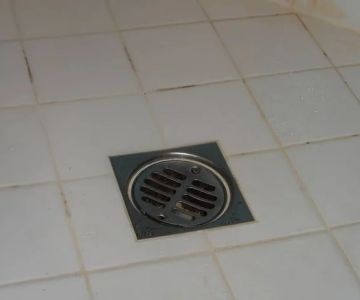
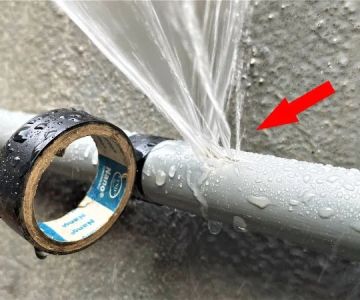
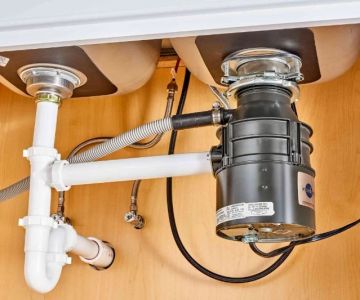
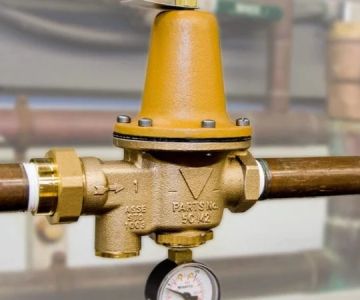
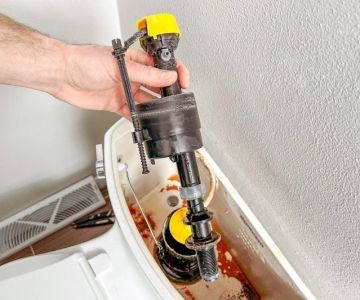
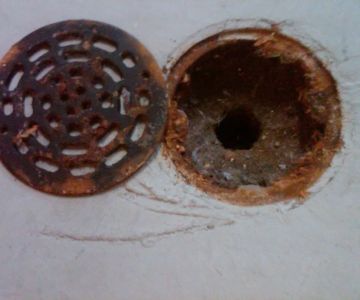
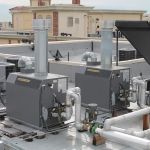 Benrich Service Company3.0 (29 reviews)
Benrich Service Company3.0 (29 reviews) Olympian Plumbing LLC4.0 (208 reviews)
Olympian Plumbing LLC4.0 (208 reviews) Valley Plumbing, Inc.4.0 (476 reviews)
Valley Plumbing, Inc.4.0 (476 reviews)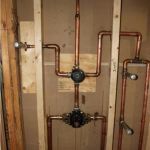 Drain Solutions Plumbing LLC1.0 (8 reviews)
Drain Solutions Plumbing LLC1.0 (8 reviews) H. Jack Langer Plumbing and Heating4.0 (284 reviews)
H. Jack Langer Plumbing and Heating4.0 (284 reviews)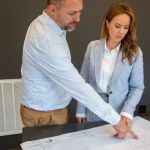 Bio Plumbing, LLC4.0 (52 reviews)
Bio Plumbing, LLC4.0 (52 reviews)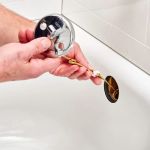 How to Repair a Broken Overflow Pipe in Tub - Step-by-Step Guide
How to Repair a Broken Overflow Pipe in Tub - Step-by-Step Guide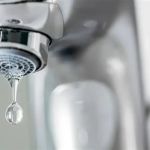 What to Check When You Have Low Water Pressure in Your Home
What to Check When You Have Low Water Pressure in Your Home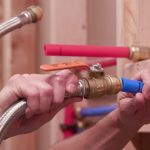 How to Replace Copper Pipes With PEX Safely | Plumbers Supply Hub
How to Replace Copper Pipes With PEX Safely | Plumbers Supply Hub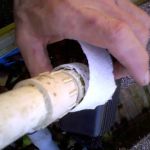 How to Repair a Crack in a Plastic Drain Pipe
How to Repair a Crack in a Plastic Drain Pipe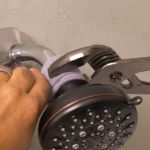 How to Replace a Showerhead with Low Flow Design for Water Conservation
How to Replace a Showerhead with Low Flow Design for Water Conservation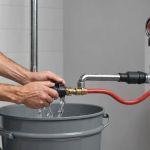 How to Safely Drain a Water Heater Before Moving
How to Safely Drain a Water Heater Before Moving